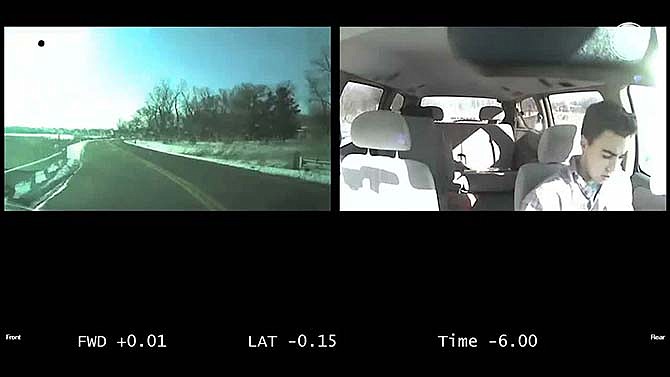This week has a twofold focus on safety for children and teens on the road, as it's National School Bus Safety Week and National Teen Driver Safety Week.
The bus safety week starts Monday and runs through Friday, while the focus is on teen driver safety extends from today through Saturday, according to news releases from the Missouri Highway Patrol.
"We want children to arrive at school safely, and they can help by being good riders," the patrol said of bus safety, adding the week is "a great opportunity for parents to talk with their children about their responsibilities as a passenger."
The Highway Patrol listed basic school bus ride safety rules for children:
- Pay attention to the surroundings and stay on the sidewalk or shoulder of the road at bus stops - and be at the stop on time.
- Board the bus single file, without pushing.
- Stay seated while the bus is in motion, and never stick any part of the body out or throw anything out of a bus window.
- Keep the aisle clear of items including books, lunchboxes, backpacks and musical instruments.
- Talk quietly to seat neighbors; never shout.
- If a student must cross the street after disembarking, he or she should remain at least 10 feet in front of the bus, and always check both directions before crossing.
- If there is an emergency, listen to the bus driver for instructions.
Last year, "five people were killed and 401 people were injured in 869 traffic crashes involving school buses," the patrol noted, adding Missouri law requires drivers on a two-lane road to stop when meeting or following a bus that is stopped and displaying warning signals while loading or unloading children. It's not necessary to stop on a four-lane highway, but it's still best to be alert for children who might unexpectedly try to cross the road.
The emphasis in teen driver safety week is to keep young drivers undistracted and aware of their surroundings, especially when parents are trying to educate their teenage children in good driving habits.
Parents and teenagers should relax and focus on what is happening on the road, not what might happen. Choose a time to learn to drive when there are no other distractions and time constraints, and talk about driving even when not in the car.
Parents:
- Don't assume what a teenager knows - tell them - but stay calm and don't yell. Give advance notice to something a driver should or shouldn't do.
- Make sure a teenager has their heel on the floor when driving, to make it easier for them to start and stop. Tell them to look ahead - not in front - to reduce swerving and drifting, and make sure they have both hands on the wheel in the correct position - 9 and 3 or 8 and 4, if the wheel was a clock.
- Talk about right-of-way, checking for blind spots - by only turning the head, not the whole upper body - staying out of trucks' blind spots and leaving stopping distance between a vehicle in front.
- The Patrol also has video resources available in its library at mshp.dps.mo.gov. If a parent isn't confident in their teenager's driving ability, they need more practice.
Teenagers:
- Expect to not be able to drive perfectly while learning, but listen to suggestions and do the best to make adjustments. Don't take criticism personally.
- Stay attentive, drive defensively, don't speed - call before leaving to let another person know of being late - and ask for a parent to explain something that might not be clear.
- Don't race yellow traffic lights. Keep an eye on traffic around, and don't panic if the vehicle travels off the side of the roadway. Always wear a seatbelt, take responsibility for passengers and don't let them have illegal drugs or alcohol in the vehicle.
- Read the state driver's guide cover to cover, and know the graduated license law.

